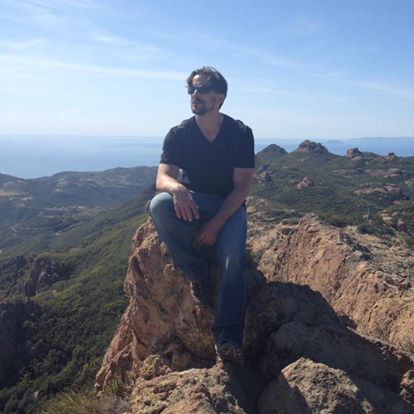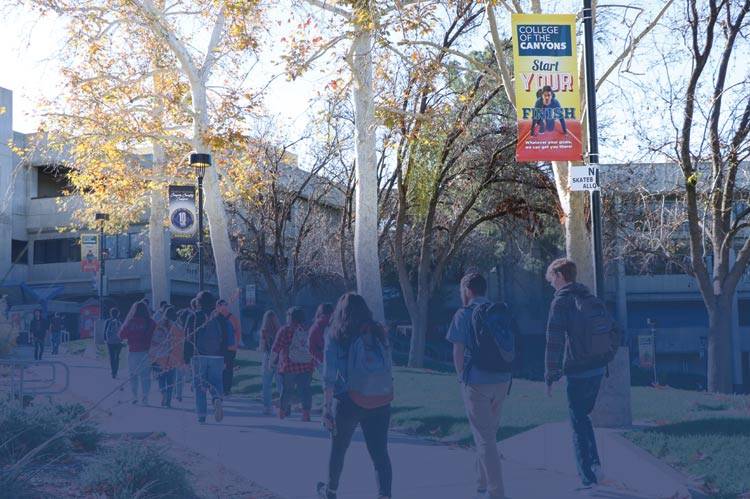Philosophy 101 - Introduction to Philosophy - Marco Llaguno
| Course: | Introduction to Philosophy |
|---|---|
| Professor: | Marco Llaguno |
| Email: | marco.llaguno@canyons.edu |
| Format: |
|
| Course Length: |
|
Introduction

Greetings everyone and welcome! I'm Marco Llaguno and it is my honor to be your instructor this semester for Philosophy 101, Introduction to Philosophy. The fall of 2017 was my first semester teaching philosophy at College of the Canyons. I previously taught philosophy at Santa Monica College, El Camino College, LA Southwest College, and Mount St. Mary?s University over the past 8 years. I very much look forward to continuing to blaze new trails with all my students here at CoC!
Course Description
This course will introduce you to philosophical reasoning and the kinds of problems that have fascinated philosophers for well over 2500 years. These problems can be grasped most easily in the form of different questions which philosophers ask about the world and try to answer in a rational manner. Examples of these sorts of questions include:
- What is philosophy? How is philosophy valuable for the individual? How is philosophy valuable for society?
- What is the nature of reality? What makes something real? How can I know that what seems to me is not an illusion?
- Do I have free will? Am I responsible for my decisions, or is my conduct predestined or programmed like a robot or a computer?
- Am I the same person I was ten years ago or the same person I will be ten years from now? What makes me a person (or a self) in the first place?
- Is anything ever right or wrong absolutely? Is it ever right (or wrong)to judge other people's choices? What makes an action good or bad in a moral sense? Can we ever know that an action is morally good or bad?
- What is the relation between religious faith and reason? Is there a god? Is it possible to prove that God exists? If an all powerful, all good God does exist, then why is there evil and suffering in the world?
These questions have proved to be difficult to resolve to any satisfactory degree in other disciplines, such as the natural sciences, mathematics, and social sciences, which you may have studied already or will study in the future. Nevertheless, these are the sorts of questions which human begins have always asked out of a sense of philosophic wonder or curiosity, and as long as human beings exist, there will be a need to go on looking for answers to questions such as these.
Philosophy is the rational search for a resolution to these questions, and in this class we shall look at a number of philosophical readings which attempt to resolve some of them. In particular, we shall concentrate on three major areas of philosophy: epistemology (which asks what knowledge is and how we know anything at all), metaphysics (which asks about the nature of reality), and ethics (which asks about the nature of morality).
The readings will be drawn from a variety of contemporary as well as historical sources. Although the bulk of the readings are from the Western philosophical canon, whenever possible, we shall point out similarities and differences between Western and Eastern traditions. Thinkers and historical periods in philosophy typically explored in this course include: ancient philosophy (Socrates, Plato, Aristotle, and Epicurus), mediaeval philosophy (Anselm and Thomas Aquinas), modern philosophy (Descartes, Locke, Berkeley, Hume, Paley, Kant), late modern/nineteenth-century philosophy (Mill, Kierkegaard, and Nietzsche), and twentieth- century/contemporary philosophy (James, Russell, Rand, King, and Sartre).
What to Expect in this Course
Course Structure
100% Online: This course is 100% online through Canvas and there are NO face-to-face meetings. In order to take this class, you must have access to a computer, internet services, and COC e-mail. All communications are done through announcements, email, and discussion boards. This course requires a great deal of discipline, organization, reading and participation several days a week (and by several, I mean at least 3-4 days a week). The Canvas course site cannot be accessed until the first day of the semester (at 8:00am PST Pacific Standard Time).
IMPORTANT ON FIRST DAY OF CLASS - To avoid being dropped from the course as a no show, you must login to the course website on Canvas and complete a discussion board activity. If you do not complete this assignment by the deadline, you will be dropped from the course. Again, the website becomes available for student access at 8:00am on the first day of the semester. It is not enough to log in to our Canvas course; you must complete the discussion board activity to be counted as present?.
Preparation
Online classes are as rigorous as regular classes and the time commitment is the same, you are expected to put in 12 hours of work each week. The content of this course is similar to what is included in a traditional format course. Canvas allows for class discussions that everyone will be expected to participate in and you will still take quizzes and exams. These quizzes and exams will have the same format as the ones you would normally take in a traditional format class. However, they are rigidly timed and you will not have the time to look up more than a couple of items. I highly recommend that you study the material well before taking a quiz or exam. This class also requires students to complete a lot of projects, reading, discussion, and sharing self-reflection through discussion posts. You will need to pay close attention to due dates and details. You must complete all assignments in each individual module by the due dates for each assignment.
Basic Required Online Skills
Basic computer literacy, including skills in Internet navigation and basic document creation and handling. At the very least, you should know how to cut and paste, how to copy from one document to another, and how to attach documents to emails.
Reliable, consistent Internet access with an up-to-date browser. AOLs browser often does not work well with Canvas, so if you are an AOL user, you will need to download another browser to use to access this course (Firefox, Chrome, etc.). In case of technical problems with your computer or Internet connection, you might choose to make use of the computer labs on COCs campus.
If you are not entirely confident in your computer skills or if anything listed here sounds unfamiliar to you, I highly recommend that you also enroll in Counseling 070 (Distance Learning and Strategies for Success), a one-unit short-term course designed to improve your success in online courses.
Types of Assessments
Over the course of the class, you should expect to complete anywhere from 3-5 assignments (video lectures to watch, readings, reflections on the readings and discussion board posts) per week, In addition, there are two 2-3 page essays and three exams that are to be turned in during the semester.
Other Relevant Course Information
Note: This is not your syllabus. Your syllabus will be posted separately on the Canvas course shell.
Additional Resources
Canvas
This course can be accessed on the first day of class via Canvas at https://coc.instructure.com. Log into Canvas using your CanyonsID single sign-on:
- CanyonsID Username is your COC student email address (Ex: username@my.canyons.edu)
- CanyonsID Password is your COC student email password
Please visit the Get to Know Your Online Classroom page for help logging into Canvas and for tips on using Canvas and Zoom. Canvas Chat Support is also available 24/7 for any Canvas related issues.
Online Education
Check out the Online Education website for more information on a variety of topics that can help you be a successful online student such as: exam proctoring, learning styles, computer skills, and tips for student success. If this is your first online course, feel free to take our online learning readiness assessment to assess your skills.
The Learning Center (TLC)
The TLC provides FREE online tutoring resources to COC students!
Academic Accommodation Center (AAC)
College of the Canyons AAC provides educational services and access for eligible students with documented disabilities who intend to pursue coursework at COC. A variety of programs and services are available which afford eligible students with disabilities the opportunity to participate fully in all aspects of the college programs and activities through appropriate and reasonable accommodations. For more information on their services visit the Academic Accomodation Center website.
Online Counseling
The Counseling Department offers appointments online. You can schedule an appointment by visiting the Online Counseling website. Counselors can help you map out a plan to reach your educational goals as well as advise you on course selection and registration.
Management of Stress and Mental Health
Often the pressure on our students is very strong, involving academic commitments, relationships, outside jobs and family pressure to name a few. The staff and faculty of College of the Canyons are here to see you succeed academically and care about your emotional and physical health. You can learn more about the broad range of confidential student services, including counseling and mental health services available on campus by visiting the Student Health & Wellness Center in the Student Services Building (across from the bookstore). The phone number is 661-362-3259 that you can call 24/7. You can also e mail for an appointment at StudentHealthCenter@canyons.edu. At the Canyon Country Campus the Health Center will be in the new Student Services Building.
Also, the National Suicide & Crisis Lifeline number is now 988. All students at COC are encouraged to enter that phone number in their cells. You can call it when you, or someone you know, is having thoughts of suicide or is in severe distress.
You can also now use the Crisis Text Line: Just text "Courage" to 741741. Someone will get back to you immediately. Its free, 24/7, and confidential.
Veterans Resource Center
The College of the Canyons Veterans Resource Center is a department within the Student Services Division at the college, created to help veterans and veteran dependents with applying to College of the Canyons, enrolling in classes, and requesting VA Education or Vocational Benefits. For more information please visit the Veterans Resource Center website, email veterans@canyons.edu or phone (661) 362-3469.
Library
The Library provides live online and in-person research help, access to a full range of e-resources and physical materials that support the curriculum, individual and group study areas, and much more!
Last updated: 10/06/2021 Sub#: 736

